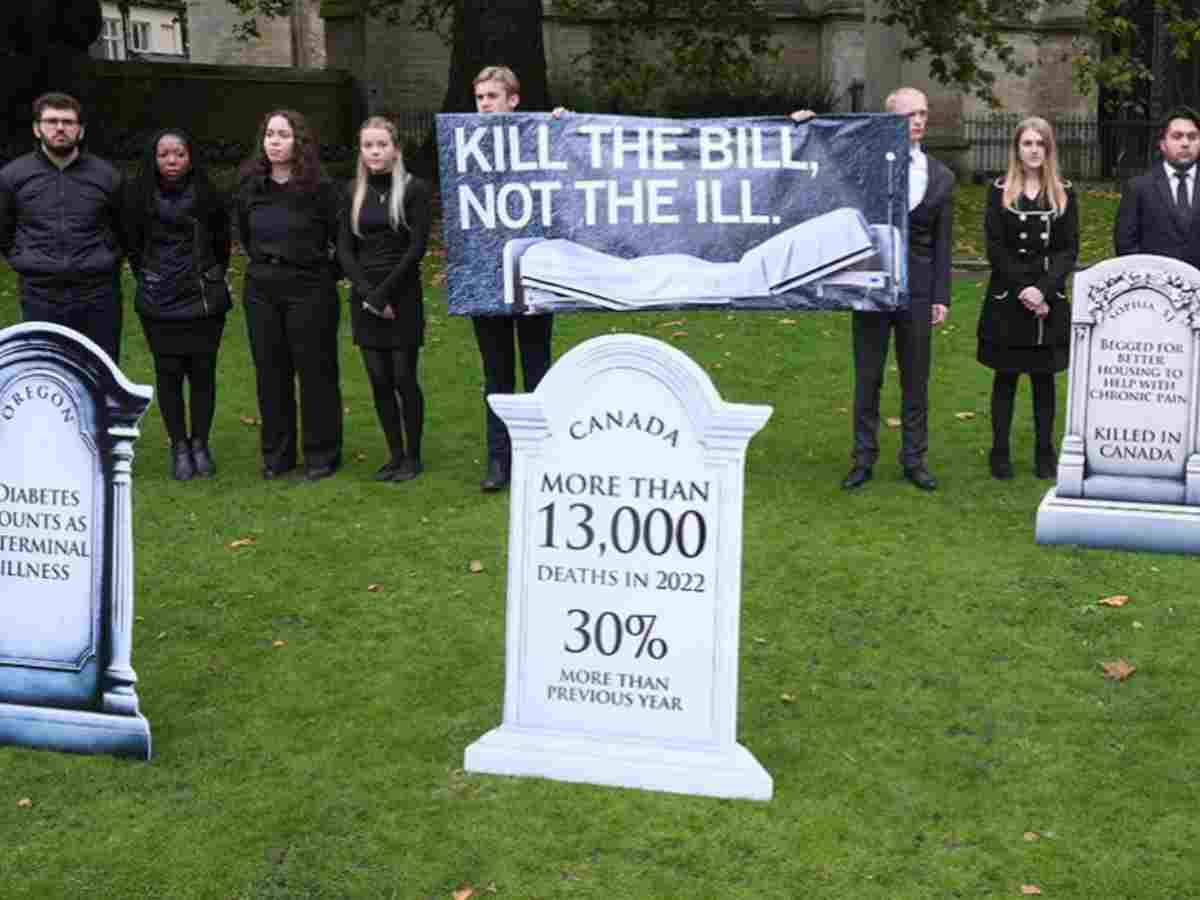There are currently two news stories doing the rounds that are concerning to disabled people. Firstly is, of course, the assisted dying bill that’s gaining more and more traction. The second is the Department for Work and Pensions’ (DWPs) Get Britain Working plan, of which the latest idea to drop is putting work coaches in mental health hospitals.
These stories can and should be talked about in their own right. But it’s also important that we see them side by side.
Assisted dying: we don’t live in a perfect world
Today, we see the first reading of Kim Leadbeater MP’s Private Members’ Bill on assisted dying in the House of Commons. The cause has been heavily championed by Esther Ranzten who is herself terminally ill, and who Starmer has said he promised would make his bill happen. Which is ironic when he’s ignoring an untold amount of disabled people who are demanding reforms in benefits and care.
Feelings on assisted dying are complicated and it’s far too nuanced to simply say “everyone should get to end their life if they’re dying”.
My belief is that in a perfect world, everyone should have the right to choose how they want to die. But when disabled people don’t even have the right to live with dignity how are we expected to trust this won’t be forced on us?
Whilst those who want this bill pushed through are claiming it would only apply to terminally ill people, worryingly many MPs are already calling for the net to be widened and it to also be offered to those with chronic conditions. This is a slippery slope the likes of which we’ve seen with MAiD in Canada where disabled and poor people have been pressured into ending their lives as they can’t afford to live.
And so we come to the DWP’s plans to Get Britain Working again. As my brilliant Canary colleague Hannah Sharland reported, there are currently plans to put job coaches into mental health wards.
I don’t know about you but the last thing I wanted, fresh from my suicide attempt at 20, was to be reminded that I’m a burden on taxpayers and need to stop worrying about my mental health and go take my place as a cog in the capitalist machine.
The BBC reported that Kendall:
indicated some people will lose their benefits, saying the “benefit system can have a real impact on whether you incentivise or disincentivise work”
Another bizarre thing being foisted on job seekers will apparently be weight loss jabs, if Wes Streeting has his ways.
Back in September however, Wes ‘Ozemprick’ Streeting expressed concern that many may turn to assisted dying as they felt like a burden to their families.
He told the FT Weekend Festival:
I do not think that palliative care, end-of-life care in this country is in a condition yet where we are giving people the freedom to choose, without being coerced by the lack of support available.
This is one of the concerns of a coalition of disabled organisations who have today sent a briefing to MPs ahead of the vote. The briefing outlines the need for safeguarding against abuse, proper scrutiny of the Bill and fixing services, including palliative care, so that terminally ill people have a genuine choice at the end of life.
We need assistance to live
We already live in a country where an untold amount of disabled people have ended their lives or died due to neglect after being denied support or having their benefits cut; where when six in 10 Covid-19 deaths in England are disabled people, non-disabled people cared more about whether they could go to the pub; where in the year 2021/22 over 14,200 disability hate crimes were reported to the police.
All the while pervasive media coverage paints us as scroungers, fraudsters, and burdens on society. Where stories around the DWP are used as clickbait to generate ad revenue for greedy media moguls.
I also think a big part of the argument is this worry of being a “burden”, which comes from the media and DWP narrative of disability and sick people – so, we’re made to believe that we’re forcing or tying down our families who want to care for us.
As someone who is helping to care for dying relatives, I understand the pain of watching loved ones slip away. But with disabled people struggling to live, it’s hard to see how this bill wouldn’t be used to force disabled people into ending their lives – and we shouldn’t let the powerful emotions of grief stop us from seeing that.
At the end of the day, everyone should be able to have dignity in dying. But they need to be allowed dignity in life first – something disabled people don’t currently have.
Featured image via the Canary




